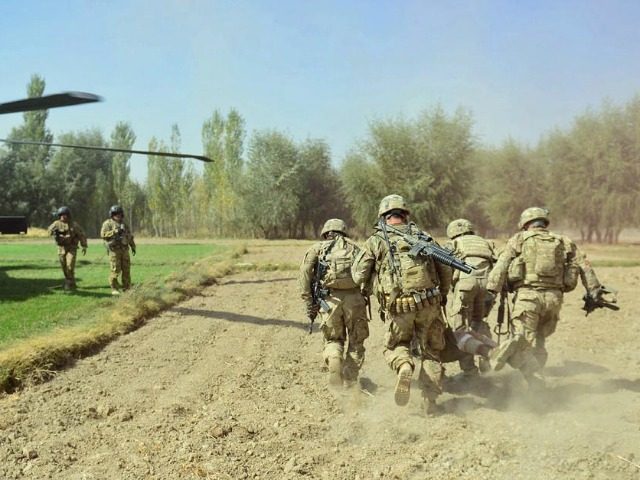WASHINGTON — A U.S. Army Special Forces soldier was severely wounded in southern Afghanistan on Thursday, according to the top U.S. and NATO troop commander in the country.
The soldier was injured while on a mission with Afghan troops in Sangin, a town in southern Afghanistan’s Helmand Province, according to a U.S. military spokesman. The soldier, whose identity was not revealed out of privacy concerns, is currently in surgery, the spokesman said.
Army Lt. Gen. John Nicholson’s disclosure came during a Senate Armed Services Committee hearing on the current situation in Afghanistan. The disclosure was unusual since the Pentagon does not typically announce when troops are wounded. It also underscored the danger U.S. troops face in Afghanistan, where 8,400 are currently deployed.
Sangin was the site of heavy fighting and combat casualties for the U.S. Marines, as well as British troops, who were sent to secure the Taliban-held area during the war. It was also the site where Homeland Security Secretary Ret. Marine Gen. John F. Kelly’s son was killed while deployed in 2011.
An estimated 300 Marines are gearing up to deploy back to Helmand later this year, as part of an expeditionary task force to train Afghan forces. It marks the first return to the area for Marines since they left in 2014 when former President Obama declared the end of the combat mission.
The Taliban has made a comeback since, now controlling 28 percent of Afghanistan, according to U.S. military officials briefing reporters late last year. They continue to make territorial gains in the region.
More than half (57 percent) of Helmand is currently controlled or heavily influenced by the Taliban, according to the latest report from the U.S. Special Inspector General for Afghanistan Reconstruction (SIGAR).
Helmand produces more opium than any other region in Afghanistan, making it a crucial source of revenue for the jihadist group.
Nicholson told reporters in December: “They [the Taliban] receive much of their funding from the narcotics trafficking that occurs out of Helmand… As you know, Helmand produces a significant amount of the opium globally that turns into heroin and this provides about 60 percent of the Taliban funding, we believe.”
Afghanistan is the world’s top producer of opium and its heroin derivative.

COMMENTS
Please let us know if you're having issues with commenting.